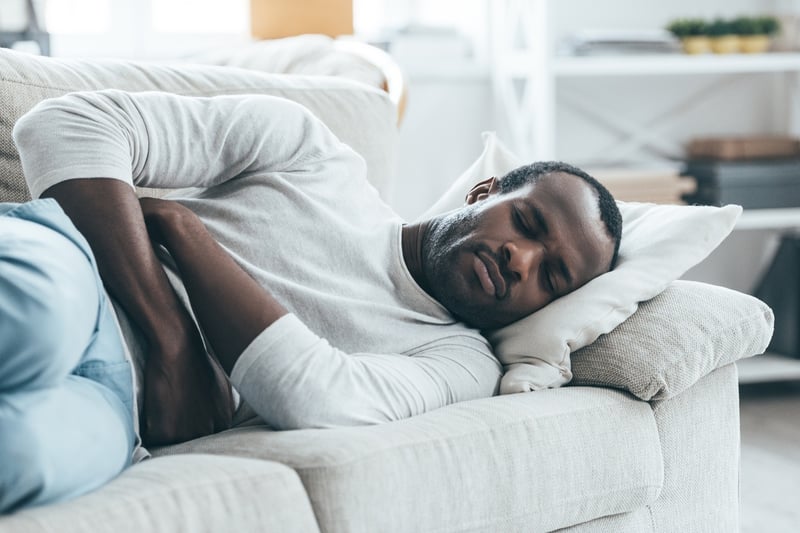The Nightmare of Sleeping with Chronic Pain

Trying to get good sleep when you have chronic pain is often a challenge. A 2015 Sleep in AmericaTM poll found that people with pain are likely to report daily sleep problems. In fact, sleep complaints are reported to be present in 67-88% of chronic pain disorders. Whether pain prevents you from sleeping or interferes with your quality of sleep, chronic pain can be a nightmare for some people.
Is good, quality sleep important for people with pain?
Not sleeping well can make pain feel even worse and may have a negative impact on your health long term. Two significant direct results of poor sleep are an increased risk of depression along with an increased risk of high blood pressure. Further, poor sleep can interfere with activities, relationships, lower your quality of life, make it harder to remember things and leave you feeling tired and fatigued.
An effect of chronic pain may be a decrease in the amount and quality of sleep you get. Yet poor sleep can make chronic pain feel worse, which can seem like a vicious cycle. Fortunately, there are things that can be done to improve sleep, help break the cycle, and start getting you back on track to a better nights rest - with the ultimate goal of a higher quality of life.
Things you can do to get a better night’s rest:
-
Start by forming healthy sleep habits. Setting yourself up with healthy sleep habits can improve your ability to fall asleep and stay asleep. Healthy sleep habits include:
-
Turning off electronic devices at least 30 minutes before bedtime
-
Avoiding stimulants like caffeine and cigarettes in the evening
-
Limiting alcohol before bedtime, which has been reported to have a negative association with the quality of sleep you get
-
Try some of these healthy sleep habits and see what works for you! Even a few slight adjustments can be the difference between a good night’s sleep and a restless slumber. Healthy sleep habits should be used even if you also use medications to help sleep.
- Review your medications. Some medications can influence sleep, for instance, taking high dose opioids is a risk factor for sleep-disordered breathing (SDB) and SDB can impact your quality of sleep.
Some medications can also make it harder to fall asleep, such as pain relievers that contain caffeine. It is beneficial to review your medication list with your healthcare professional and/or pharmacist to determine if any of the medications you’re taking may be impacting your sleep. Something as simple as changing the time of day you take your medication may help contribute to better sleep.
- Sleep medications may be an option, but they do come with risks. It’s important to understand that medications do come with risks in addition to potential benefits. For instance, the FDA recently released their strongest warning regarding serious risks when combining opioids and a common class of medications sometimes used for sleep called benzodiazepines. You should talk with your doctor before taking any medication for sleep.
Dealing with pain when sleeping can leave you feeling helpless. By staying informed, developing healthy sleep habits, and assessing the balance of risks verses benefits of your options can help lead you to a better night’s sleep.
Other Posts You Might Be Interested In
Subscribe to email updates
Stay up-to-date on what's happening at this blog and get additional content about the benefits of subscribing.


